Balancing Rights and Obligations
ONE of the pertinent areas that Islam highlights in its economic organisation is in the aspect of the rights of an individual and his social responsibility.
Islam believes that one of the means to realise economic justice is to harmonise individual rights and social responsibility.
The proper approach to this issue is very fundamental in order to achieve a caring society, as opposed to the individualistic nature of a liberal, materialistic society.
Man by nature requires the right to determine his own destiny. Indeed it is very fundamental to a society that individual rights be highly placed in the appropriate perspective.
The proper placement of an individual’s rights to manoeuvre himself within the societal set-up is the key to the establishment of a noble society.
In his last sermon, among other important reminders to mankind, Prophet Muhammad (p.b.u.h) gave great emphasis on the rights of individuals in the following words: “0 Men, your lives and your property shall be inviolate until you meet your Lord. The safety of your lives and of your property shall be as inviolate as this holy day and holy month.”
In the light of this hadith, Islam gives an assurance through the state authority to the safeguarding of human lives. They are very sacred.
Safeguarding human lives implies that an individual’s rights to adhere to religious faith, legal, security, mobility, participate in economic activities, elect the leader for the society, fulfil individual basic needs, etc, are all guaranteed at birth by Islam.
The absence of these rights will destroy a society and ultimately humanity.
At the same time, Islam also accords the individual the right to own and utilise his property in line with his choices within the guidelines of shariah.
From the economic perspective, this right is very fundamental to a nation’s economic success. This is because it allows ample space for individuals to decide and be able to achieve high creativity and productivity.
Collective property ownership and centralisation of economic decisions are not in consonance with the nature of individual rights and societal set-up. This will destroy the availability of the basic ingredients needed for economic success.
For a nation to achieve economic success, it has to attain a high level of productivity and the ability to produce quality goods and services.
Both of these goals by nature will never be attained if the individuals are not motivated, dedicated and possess creativity.
An environment which is conducive for individuals to possess all these proper qualities insists on this natural set-up, i.e. the right to own property and decentralisation of economic decisions in society through an individual’s rights to economic enterprise.
Islam insists that individuals should strive for a respectable position in society. Being free to decide for his own future, in the eyes of God, an individual can even surpass the angels in doing good deeds and acquiring nobility, provided he subscribes to the ideal of Allah’s commandments.
Islam emphasises that in participating in economic activities, the spirit of individual initiative is through voluntary action.
Islam believes that voluntarism is the key to human success. This is because it is natural for human nature.
The imposition of Islamic legal measures is a minimum requirement for man individually and collectively to organise as a united society.
For example, the imposition of zakat on the wealth of Muslims is a minimum legal requirement as a source of income for the state to eradicate poverty and to defend Islam. This religious requirement does not impose a big burden to the zakat payers.
In fact the spirit of zakat is to put the wealth of the society into greater circulation. This will lead to economic justice, stability and dynamism.
Islamic teachings highly encourage individuals to give aims or gifts to the needy, besides zakat. Through such voluntary actions, individuals are helping the authorities to eradicate poverty among the masses.
This is indeed an individual social responsibility. Through this voluntary action encouraged by Islam, it will motivate every single individual to participate actively in society building.
A strong society can eventually produce a positive environment for better economic performance.
If the zakat collected by the state is not sufficient to meet the needs to fulfil the basic requirements of the masses and the problem cannot be solved through the collective actions of society, the state has to participate through the raising of revenue by imposing taxes.
Taxes imposed should not be extensive to the extent that it reduces an individual’s rights and liberty.
Islam tries to strike a balance between individual right and social responsibility. This ability can lead to social progress.
Islam highly recognises the individual’s rights to own and make economic decisions. Proper and effective economic decisions demand that the structure of the system be decentralised.
Decentralisation can serve the spirit of individual rights.
This spirit of Islam places significant stress on private enterprise in the economy. Despite that it is not similar to the understanding of private enterprise as in laissez faire.
Private enterprise in Islam has to be harmonised with ethical and moral values and social responsibility.
Since an individual has a prominent role to play in society, Islam places great emphasis on education to develop proper human character.
The purpose of education in Islam is to produce good and productive individuals. Moral and ethical education must not be understood to mean developing only in terms of good behaviour, but also the ability to play a leading and productive role in all social functions.
Islam provides special positions for those who are able to acquire managerial and professional skills.
The appointment of Khalid Ibn Walid as military commander by Prophet Muhammad (p.b.u.h) to lead military expeditions during his time was a great testimony to the respect given to a professiona!
Despite the presence of many pious, older and knowledgeable companions, Khalid was picked from among them by the Prophet to lead military expeditions basically because of his military knowledge.
Islam believes that individuals are also social beings. To perfect one’s personality, Islam insists that individuals participate and be contributive to society.
Islam, through fard kifayah (social obligatory duty), has imposed obligations on all Muslims to undertake social obligations for the benefit of the whole society. If no individuals come forward to fulfil a particular necessary function, then the entire Muslim community will be answerable to God.
If there are a few who are able to perform that social function, then the whole community will be religiously freed from that responsibility.
This arrangement of the Islamic social order reflects the need for individual co-operation with social responsibility. Thus, individual rights and social responsibilities must always be harmonised.
The harmonisation of individual rights and social responsibilities will promote a system which is conducive for economic success.
The Islamic approach to social organisation as discussed above reflects the multi-dimensionalism of human nature. This understanding is very important for a stable, harmonised and just society.
Economic dynamism can only be achieved if all these social requirements are fulfilled. This is because Islam believes that there can never be economic dynamism if there are shortcomings in organising society for economic development.
Thus in order for man to progress in the future this understanding of basic human nature is very important, that is, man is both an individual and a social being.
Our ability to organise society based on this ideal can lead to greater individual contributions and at the same time realise a stable and strong society through its economic development.




